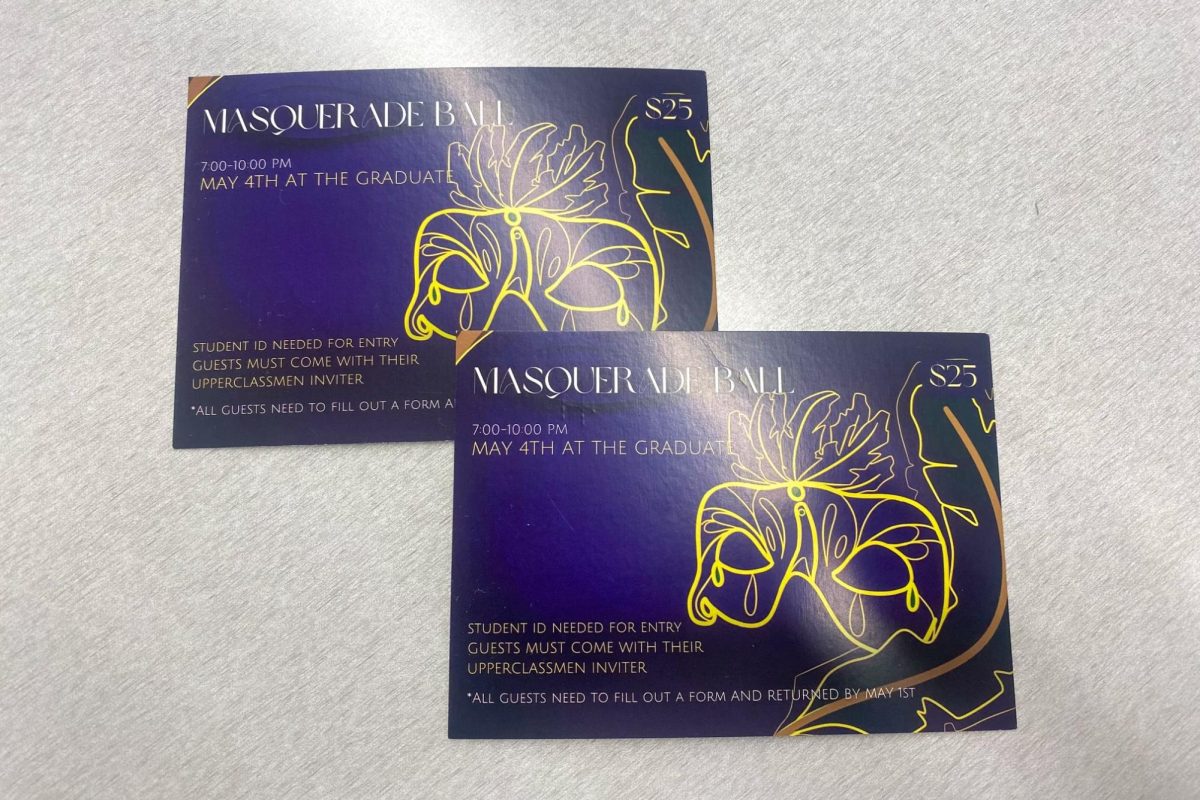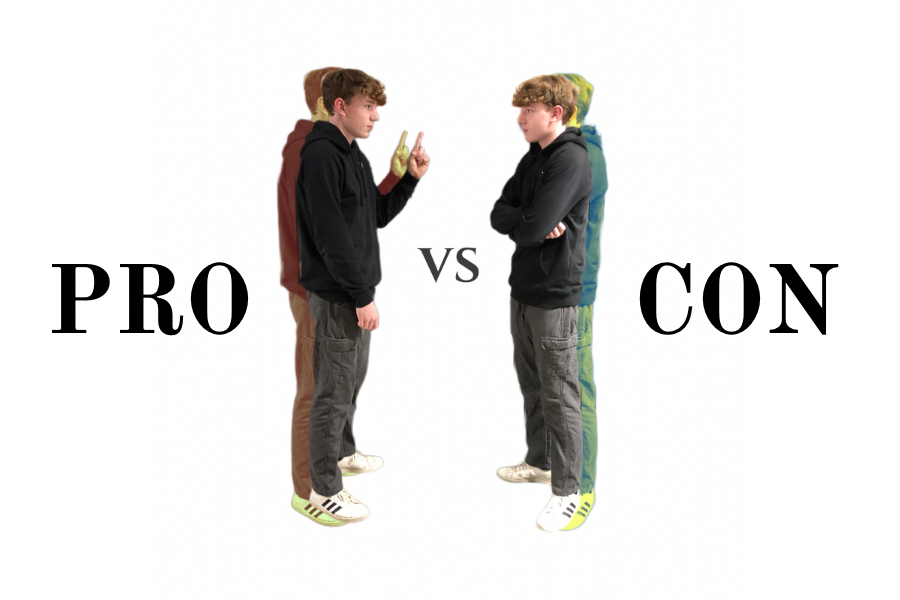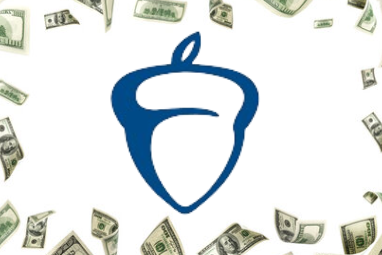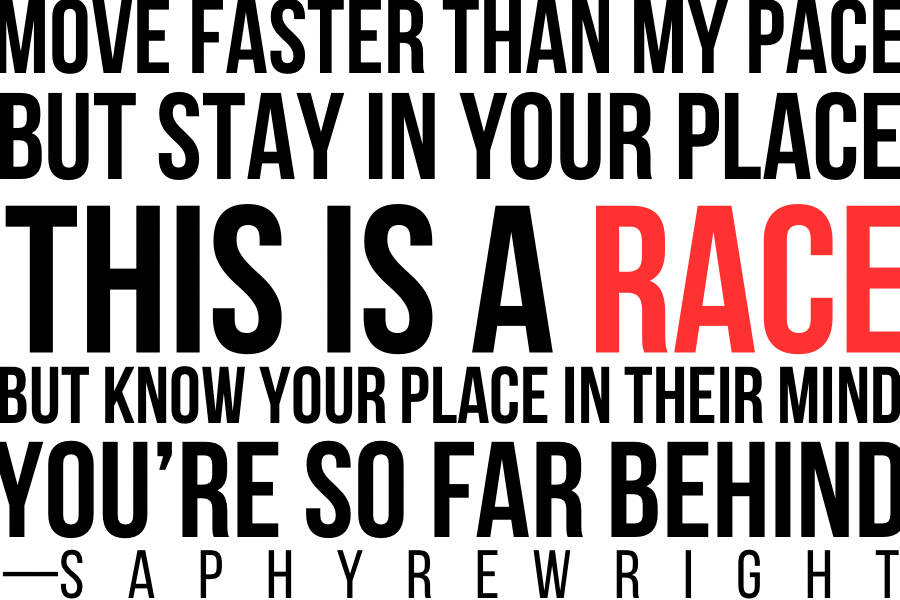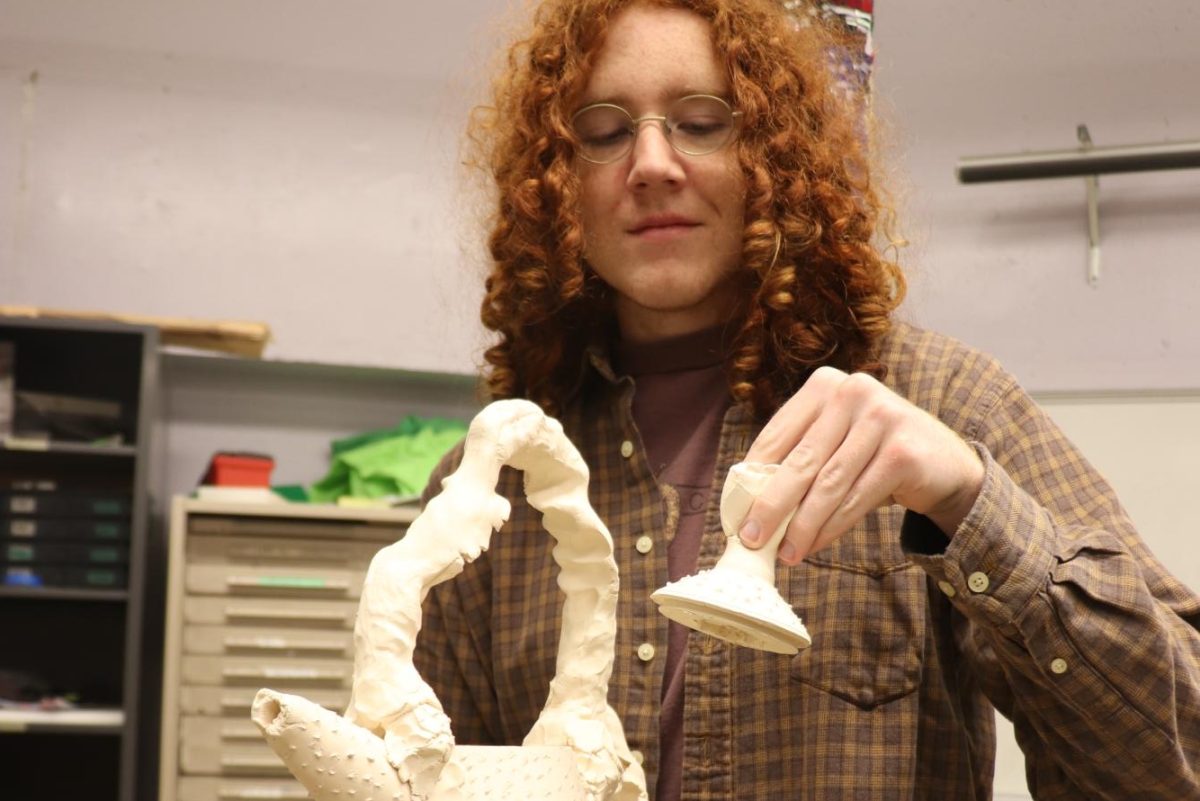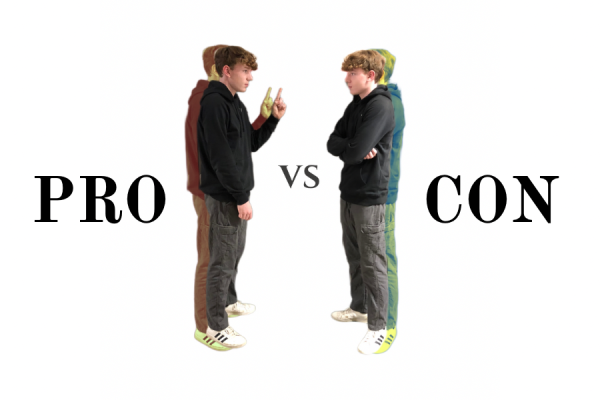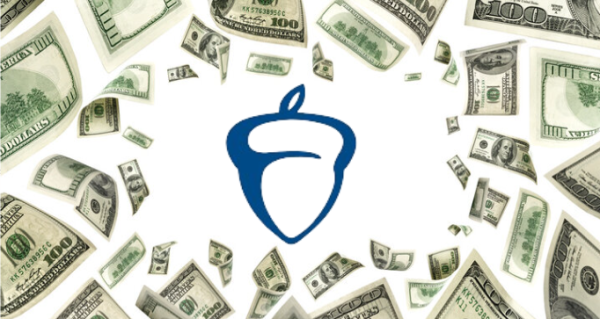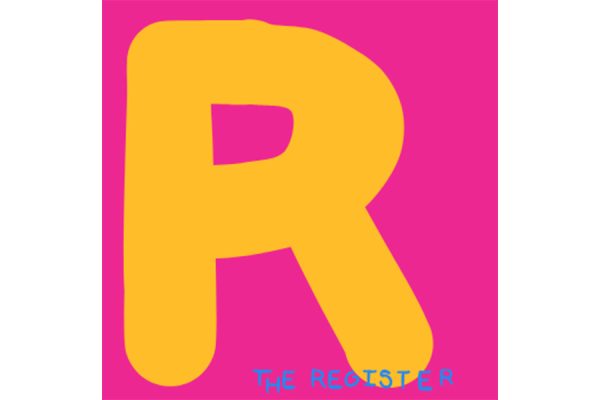The Riches of Religion
Art by Haileigh Steffen. America has always been a capitalistic nation, but has it’s love of money reached beyond it’s boundaries?
December 19, 2019
A few weeks ago, I was brought to a superchurch against my will. I was staying with the family friend of a family friend in Chicago. Before we had left that morning, I was told I was going to have “a life-changing experience.” I had no idea what it was, but once we were out the door on our way to the church, it was too late to tell them I’m Jewish. It was indeed life-changing, but not in the way they had hoped.
My jaw dropped when I first entered the church. It seemed to be a normal church from the outside, but once you walked in you saw a stage equipped with lights and a billboard-sized screen, with a band warming up in the middle. I had no opposition towards the prayers or the singing that took place that Sunday morning, but what did strike me was the complete commercialization of the church.
They played video after video on their giant screen, advertising all the programs that the churchgoers could buy into. Videos of Christian rock concerts that they had at their various chapters all over Chicago flashed across the screen. They played a different, cliched video about the story of how a man convicted of armed robbery prayed to God before his trial and got only a few years in prison. When he was released the man started a chapter of the church in his poor Southside community through one of the church’s programs. The religious script they were going over had the theme of “breakthrough.” The pastor kept repeating, “if you pray, God will break through.” Little did I know that the theme of “breakthrough” was a build-up for their “Breakthrough Party” in November, where every member of the church was supposed to bring a gift of a breakthrough. But this church is not the only group exploiting faith and religion for money.
As we near the holiday season, the ever-present atmosphere of giving has invaded every aspect of our lives, regardless of religious denomination. Ads are splattered on TV, magazines, YouTube, and everywhere else to get us to buy the latest iPhone or the newest trendy gift. And we listen. We buy their products for ourselves, for our families, all in keeping with the notion that it’s the season of giving. The entire Jewish holiday of Hanukkah never meant much religiously, and only became popular so that Jewish children could also take part in the holiday gift-giving. But what is the true purpose and intent behind these gifts?
It feels as though the money and materialistic things we value have corrupted the sanctity of religion. Regardless of denomination, or if you’re religious or not, it goes without saying that religion is about faith, not money, not gifts. We need to stop using religion as an excuse to satisfy our capitalistic needs, and instead find the true meaning of “giving.”
This issue, however, isn’t only present around Christmas but is pervasive in all holidays. It isn’t a new revelation to say that American holidays, both religious and secular, have been taken over by companies trying to sell us their products. It also isn’t inherently wrong to buy those products. But we should be aware of those purchases, especially during holidays. How do they truly fit into the meaning of the holiday?
Take Thanksgiving, for example. The holiday about being grateful, giving thanks, and spending time with family. However, the day after is Black Friday. A day about spending money and getting the best deals. While there is nothing inherently wrong with spending money, think about the time it coincides with. A time that has historically been about the slaughter and appropriation of Native Americans. Furthermore, is spending a lot of money on new things truly honoring the idea of giving thanks and being grateful? While Thanksgiving isn’t a religious holiday, these paradoxes of giving and being grateful whilst continuing to buy and buy applies to most religious holidays.
With Christmas and other holidays coming up, we need to question the capitalized versions of these holidays. We need to think, “Am I truly giving?” While it is a bit cheesy, we need to understand the true meaning of the holidays. So take a step back, and see how you can truly give rather than take.





